Angelbornaltruist - Certified Tweaker

More Posts from Angelbornaltruist and Others
I have roughly 20 hours, plenty of time to announce that I am making this specific blog more for the unhinged ramblings and unassisted thoughts. I'm gonna make a separate blog for stories and writer stuff later.
I think the Hunger Games series sits in a similar literary position to The Lord of the Rings, as a piece of literature (by a Catholic author) that sparked a whole new subgenre and then gets blamed for flaws that exist in the copycat books and aren’t actually part of the original.
Like, despite what parodies might say, Katniss is nowhere near the stereotypical “unqualified teenager chosen to lead a rebellion for no good reason”. The entire point is that she’s not leading the rebellion. She’s a traumatized teenager who has emotional reactions to the horrors in her society, and is constantly being reined in by more experienced adults who have to tell her, “No, this is not how you fight the government, you are going to get people killed.” She’s not the upstart teenager showing the brainless adults what to do–she’s a teenager being manipulated by smarter and more experienced adults. She has no power in the rebellion except as a useful piece of propaganda, and the entire trilogy is her straining against that role. It’s much more realistic and far more nuanced than anyone who dismisses it as “stereotypical YA dystopian” gives it credit for.
And the misconceptions don’t end there. The Hunger Games has no “stereotypical YA love triangle”–yes, there are two potential love interests, but the romance is so not the point. There’s a war going on! Katniss has more important things to worry about than boys! The romance was never about her choosing between two hot boys–it’s about choosing between two diametrically opposed worldviews. Will she choose anger and war, or compassion and peace? Of course a trilogy filled with the horrors of war ends with her marriage to the peace-loving Peeta. Unlike some of the YA dystopian copycats, the romance here is part of the message, not just something to pacify readers who expect “hot love triangles” in their YA.
The worldbuilding in the Hunger Games trilogy is simplistic and not realistic, but unlike some of her imitators, Collins does this because she has something to say, not because she’s cobbling together a grim and gritty dystopia that’s “similar to the Hunger Games”. The worldbuilding has an allegorical function, kept simple so we can see beyond it to what Collins is really saying–and it’s nothing so comforting as “we need to fight the evil people who are ruining society”. The Capitol’s not just the powerful, greedy bad guys–the Capitol is us, First World America, living in luxury while we ignore the problems of the rest of the world, and thinking of other nations largely in terms of what resources we can get from them. This simplistic world is a sparsely set stage that lets us explore the larger themes about exploitation and war and the horrors people will commit for the sake of their bread and circuses, meant to make us think deeper about what separates a hero from a villain.
There’s a reason these books became a literary phenomenon. There’s a reason that dozens upon dozens of authors attempted to imitate them. But these imitators can’t capture that same genius, largely because they’re trying to imitate the trappings of another book, and failing to capture the larger and more meaningful message underneath. Make a copy of a copy of a copy, and you’ll wind up with something far removed from the original masterpiece. But we shouldn’t make the mistake of blaming those flaws on the original work.
Mondstadt Masterlist
‘A’ means angst
'Y’ means yandere related stuff
Keep reading
Anyway, y’all should tell me your top 5 favorite hymns (but watch out! I am reading into it)
odysseus absolutely does present a threat to penelope if he perceives her as at all unfaithful, and i feel the unfairness of this, and i think people tend to undersell how much tension at least potentially exists between odysseus and penelope. but i'm also like. his reaction, all speculation aside, his actual reaction in the odyssey to her flirting with the suitors is delight, because he immediately ascertains that she is running a con. sorry that they're so in-sync in spite of the forces that try to drive a wedge between them, including their own misgiving hearts. sorry that they invented homophrosyne ¯\_(ツ)_/¯





it wild to me that there are people out there who aren't interested in history
like wdym you don't think about the fact that women would tell stories as they made butter in the same way we listen to podcasts today? wdym you don't think about that one Chinese poet who wrote about how much he loved his cats hundreds of years ago? wdym you don't think about the fact that we found a gravesite of a young child surrounded by flowers from THOUSANDS of years ago? wdym you don't think about how people wrote "i was here" into the walls in Pompeii? wdym you don't think about the little egyptian boy who drew little doodles at the top of his school works more then a thousand years ago?
wdym you don't think about the fact that people, no matter the place, time, social status, are fundamentally no different from you. that they loved the same as you, enjoyed the same things you did, dreamed about a better life the same way you did. that despite how seemingly detached you are from these people, in time, place, and culture, the things you do and the thing u are, are so undeniably human that it transcends time and space
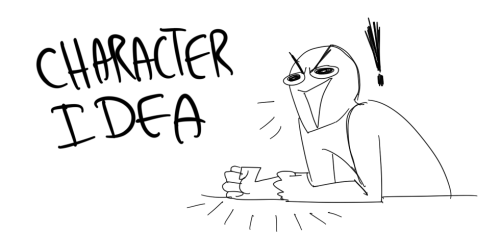
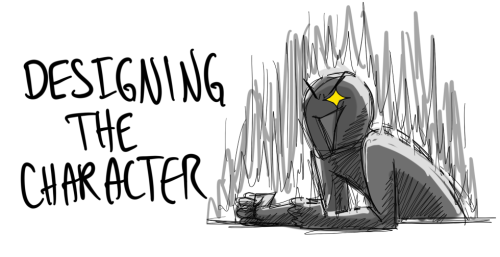
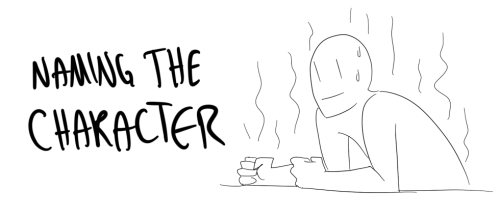
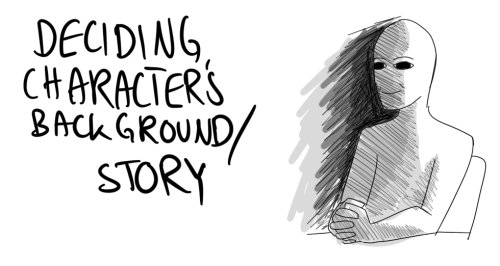
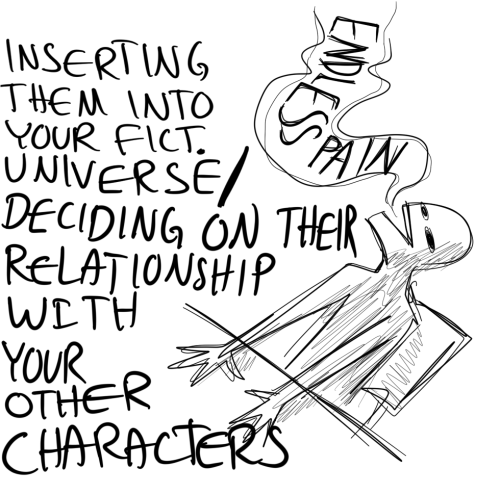
the suffering never ends
can someone please be proud of me like fuck I’m trying
Consider the following thought experiment. There is a life form that is incapable of suffering or pleasure or any form of thought or consciousness. You know this for certain. In fact, you know absolutely everything there is to know about it. It exists in an isolated system, i.e. its existence or lack thereof has no effect on anything else, it's not tied to any external ecosystem, etc. You could say the only exception to this is you the observer, but the only interaction you can have (besides knowing everything about it) is you can decide at any moment that it instantly stops existing (kill it, if you want to put it that way). Killing it does not cause any suffering of any form, not even to "you" (or whoever is making this decision). Does this life form have intrinsic value?
I guess this can be considered a proxy for asking the moral valence of killing in itself.
-
 stern1309 liked this · 2 weeks ago
stern1309 liked this · 2 weeks ago -
 weirdcatoutside liked this · 2 weeks ago
weirdcatoutside liked this · 2 weeks ago -
 cuddlefsh reblogged this · 2 weeks ago
cuddlefsh reblogged this · 2 weeks ago -
 hypnosomnia liked this · 2 weeks ago
hypnosomnia liked this · 2 weeks ago -
 justiaerdumas reblogged this · 2 weeks ago
justiaerdumas reblogged this · 2 weeks ago -
 roseheart-exe liked this · 2 weeks ago
roseheart-exe liked this · 2 weeks ago -
 synapticforests reblogged this · 2 weeks ago
synapticforests reblogged this · 2 weeks ago -
 rainwasheseverythingaway liked this · 2 weeks ago
rainwasheseverythingaway liked this · 2 weeks ago -
 depthsofsleep liked this · 2 weeks ago
depthsofsleep liked this · 2 weeks ago -
 bisquid reblogged this · 2 weeks ago
bisquid reblogged this · 2 weeks ago -
 arrenthil liked this · 2 weeks ago
arrenthil liked this · 2 weeks ago -
 doitlikeadog liked this · 2 weeks ago
doitlikeadog liked this · 2 weeks ago -
 virmeya liked this · 2 weeks ago
virmeya liked this · 2 weeks ago -
 cleptomanicrow liked this · 2 weeks ago
cleptomanicrow liked this · 2 weeks ago -
 skeks1s liked this · 2 weeks ago
skeks1s liked this · 2 weeks ago -
 somanyquestions46 liked this · 2 weeks ago
somanyquestions46 liked this · 2 weeks ago -
 20bubbly-blub08 reblogged this · 2 weeks ago
20bubbly-blub08 reblogged this · 2 weeks ago -
 20bubbly-blub08 liked this · 2 weeks ago
20bubbly-blub08 liked this · 2 weeks ago -
 uniconcern liked this · 2 weeks ago
uniconcern liked this · 2 weeks ago -
 atlantablackchaotic reblogged this · 2 weeks ago
atlantablackchaotic reblogged this · 2 weeks ago -
 redpoppy-cat liked this · 2 weeks ago
redpoppy-cat liked this · 2 weeks ago -
 raykayrei liked this · 2 weeks ago
raykayrei liked this · 2 weeks ago -
 makaraext liked this · 2 weeks ago
makaraext liked this · 2 weeks ago -
 illuzold liked this · 2 weeks ago
illuzold liked this · 2 weeks ago -
 red-pandas-and-books liked this · 2 weeks ago
red-pandas-and-books liked this · 2 weeks ago -
 mangajenga liked this · 2 weeks ago
mangajenga liked this · 2 weeks ago -
 wrmbooks liked this · 2 weeks ago
wrmbooks liked this · 2 weeks ago -
 jaiofalltrades liked this · 2 weeks ago
jaiofalltrades liked this · 2 weeks ago -
 vreliskriri reblogged this · 2 weeks ago
vreliskriri reblogged this · 2 weeks ago -
 vreliskriri liked this · 2 weeks ago
vreliskriri liked this · 2 weeks ago -
 musicloverliv liked this · 2 weeks ago
musicloverliv liked this · 2 weeks ago -
 bogboar liked this · 2 weeks ago
bogboar liked this · 2 weeks ago -
 sprigofasphodel liked this · 2 weeks ago
sprigofasphodel liked this · 2 weeks ago -
 goth-sock liked this · 2 weeks ago
goth-sock liked this · 2 weeks ago -
 teh-tj reblogged this · 2 weeks ago
teh-tj reblogged this · 2 weeks ago -
 teh-tj liked this · 2 weeks ago
teh-tj liked this · 2 weeks ago -
 death-enby liked this · 2 weeks ago
death-enby liked this · 2 weeks ago -
 strung-by-fate liked this · 2 weeks ago
strung-by-fate liked this · 2 weeks ago -
 yipyupyop liked this · 2 weeks ago
yipyupyop liked this · 2 weeks ago -
 waitingforsecretsouls liked this · 2 weeks ago
waitingforsecretsouls liked this · 2 weeks ago -
 aster-ghost reblogged this · 2 weeks ago
aster-ghost reblogged this · 2 weeks ago -
 yo-looksomeoneactually liked this · 2 weeks ago
yo-looksomeoneactually liked this · 2 weeks ago -
 aavas-raven-wings liked this · 2 weeks ago
aavas-raven-wings liked this · 2 weeks ago -
 lanyahrisse liked this · 2 weeks ago
lanyahrisse liked this · 2 weeks ago -
 mywaywardstory reblogged this · 3 weeks ago
mywaywardstory reblogged this · 3 weeks ago -
 mywaywardstory liked this · 3 weeks ago
mywaywardstory liked this · 3 weeks ago -
 lordmille liked this · 3 weeks ago
lordmille liked this · 3 weeks ago -
 vespertineoracle liked this · 3 weeks ago
vespertineoracle liked this · 3 weeks ago -
 worldweaverofmediocrity reblogged this · 3 weeks ago
worldweaverofmediocrity reblogged this · 3 weeks ago -
 eyeishvoid liked this · 3 weeks ago
eyeishvoid liked this · 3 weeks ago

follower of christ | Ni-Fe-Ti-Se | future lawyer | amateur writer | C.S. Lewis enjoyer | g/t fanboy
225 posts